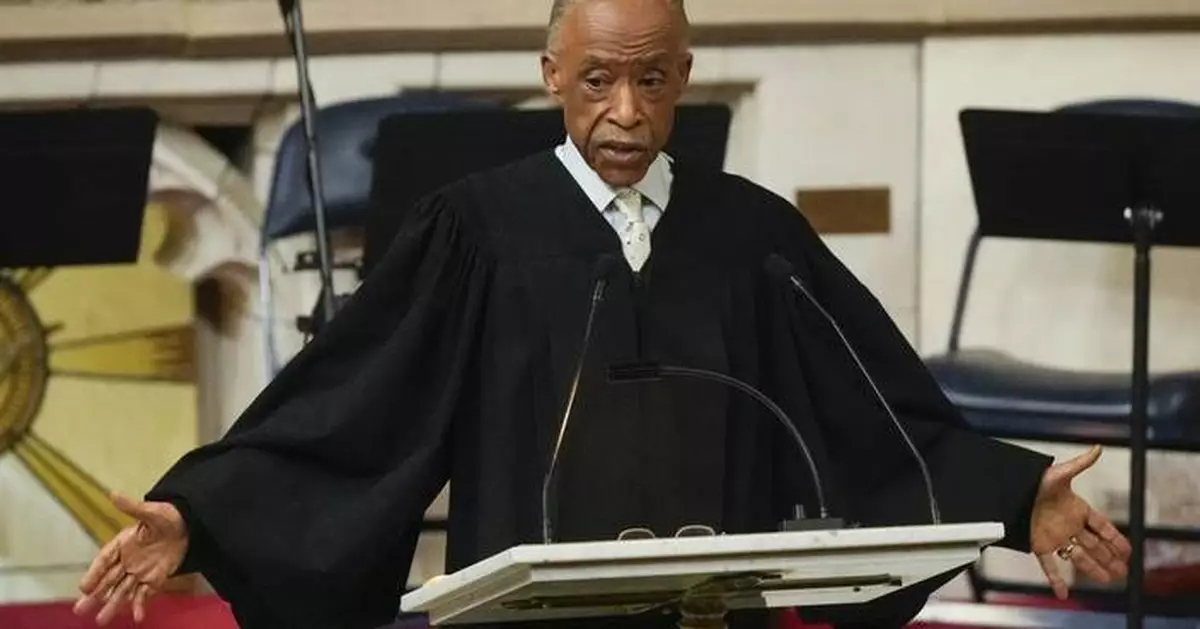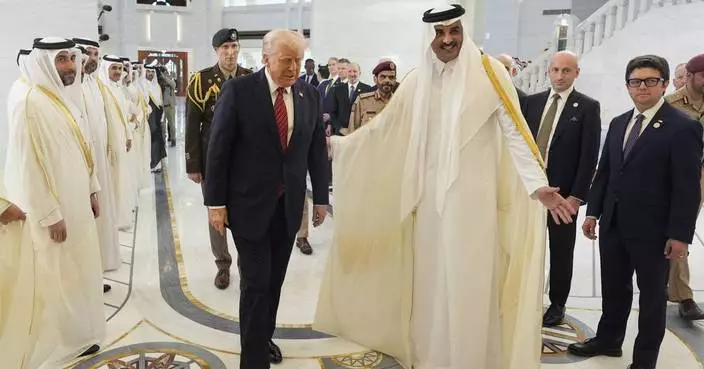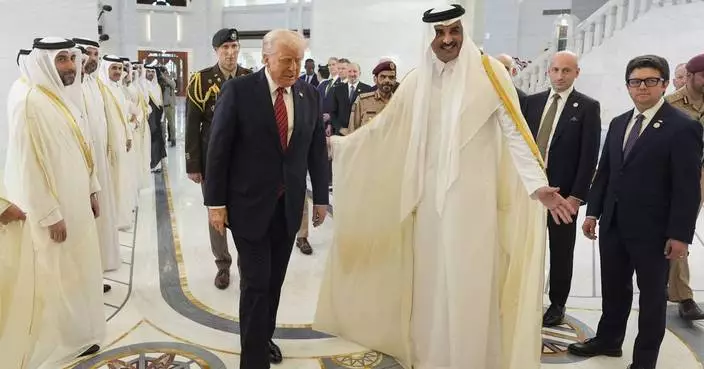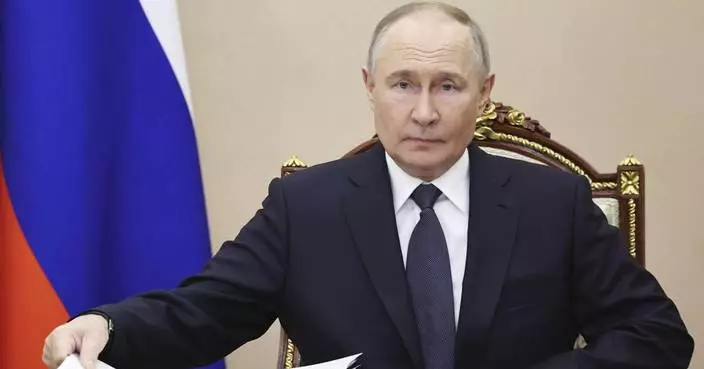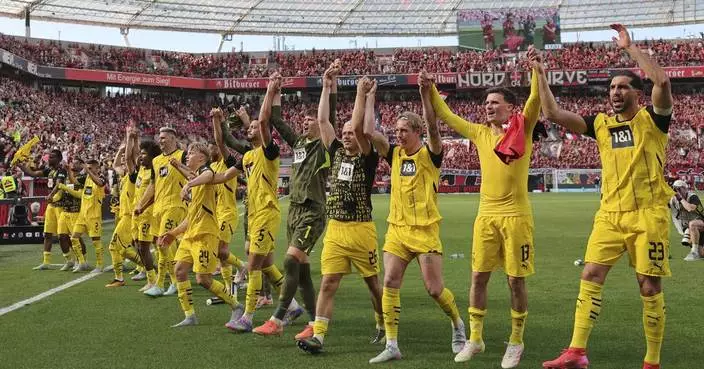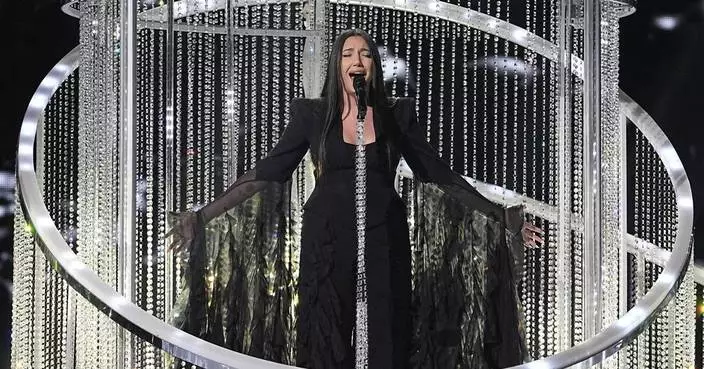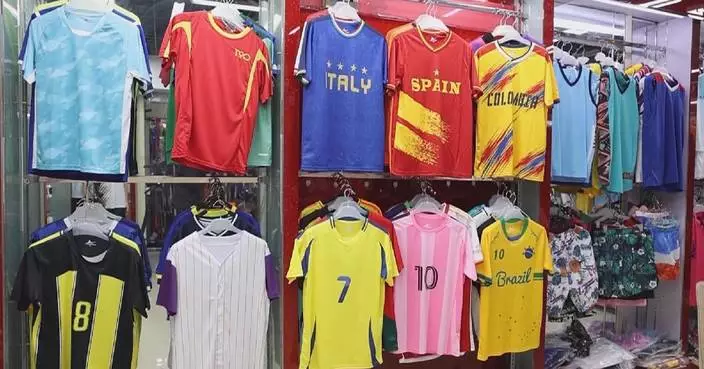NEW YORK (AP) — Target's chief executive officer met Thursday with the Rev. Al Sharpton, whose civil rights organization has encouraged consumers to avoid U.S. retailers that scaled backed their diversity, equity and inclusion initiatives.
Sharpton called the meeting with Target CEO Brian Cornell “very constructive and candid,” according to an update from his National Action Network. Two other NAN representatives, National Board Chair Dr. W. Franklyn Richardson and Senior Advisor Carra Wallace, also attended the meeting at the organization's New York headquarters.
“I am going to inform our allies, including Rev. Dr. Jamal Bryant, of our discussion, what my feelings are, and we will go from there,” Sharpton said in a statement.
Bryant, an Atlanta area pastor, organized a website called targetfast.org to recruit Christians for a 40-day Target boycott. Other faith leaders endorsed the protest, which started with the beginning of Lent on March 5.
A National Action Network spokesperson confirmed earlier Thursday that Sharpton, the group's founder and president, planned to meet Cornell in New York this week. The news was first reported by CNBC.
A Target spokesperson couldn't immediately be reached for comment.
Target is among a slew of companies, including Walmart, Amazon and PepsiCo, that have eliminated policies and programs aimed at bolstering diversity among their employees and reducing discrimination against members of minority groups, women and LGBTQ+ people.
After returning to the White House in January, President Donald Trump moved to end DEI programswithin the federal government. He has warned schools to do the same or risk losing federal money.
The National Action Network said Sharpton met on Tuesday with PepsiCo CEO Ramon Laguarta and Steven Williams, the CEO of PepsiCo North America, to “get clarity on its stance on DEI, whether they were shutting down their commitments due to pressure from Trump and right-wing activists, and the path moving forward.”
Earlier this month, Sharpton gave PepsiCo three weeks to meet with him — or suffer a boycott — to discuss reversing the company’s recent move to do away with its DEI initiatives.
The National Action Network said Thursday that Sharpton planned to consult the organization's board members over the Easter holiday “to determine any next steps with Target, PepsiCo, and other companies that have scaled back their DEI programs or pledges.”
Target announced on Jan. 24 that it would conclude the DEI goals it had set to increase Black employees’ representation and advancement, improve Black shoppers’ experiences and promote Black-owned businesses. The company also said it planned to stop submitting reports for external diversity surveys.
It is also “further evaluating our corporate partnerships to ensure they are directly connected to our roadmap for growth,” according to a memo posted on its website.
A number of other boycotts were launched of retailers that have pulled back on DEI.
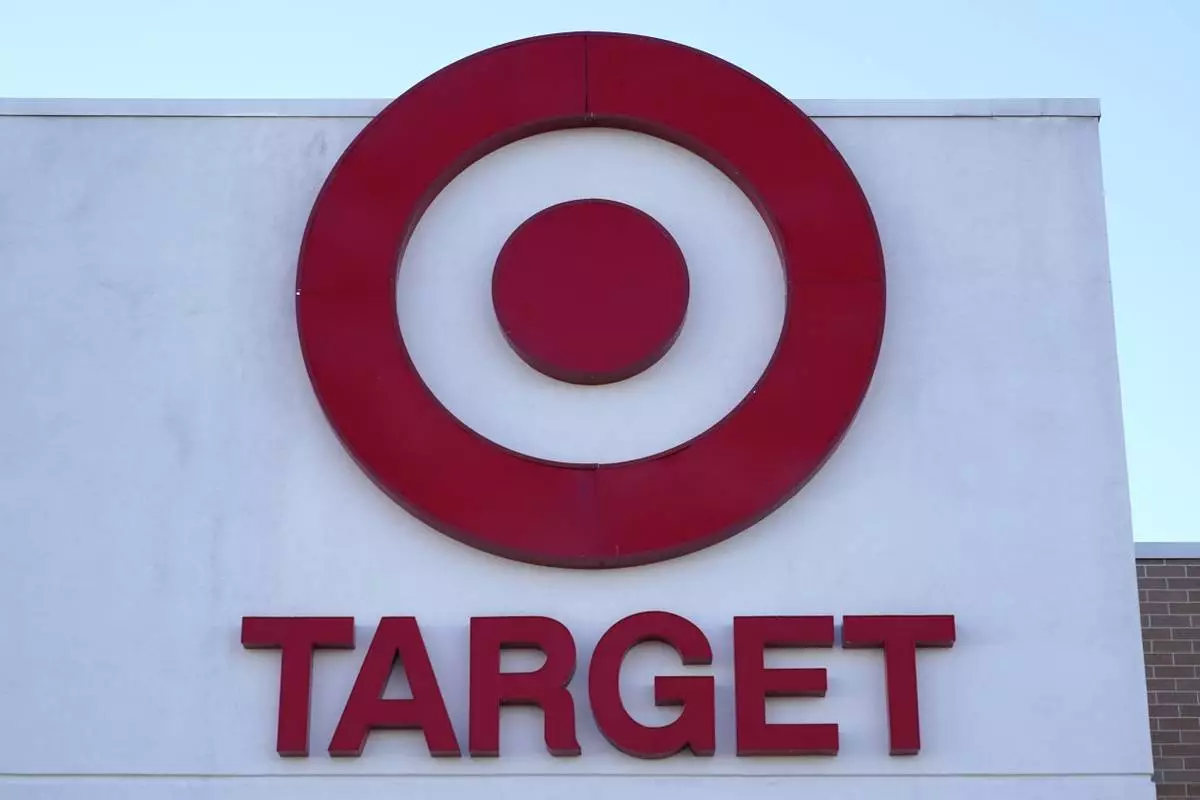
FILE - A Target logo is displayed outside of a store location, Dec. 20, 2022, in Westwood, Mass. (AP Photo/Steven Senne, File)
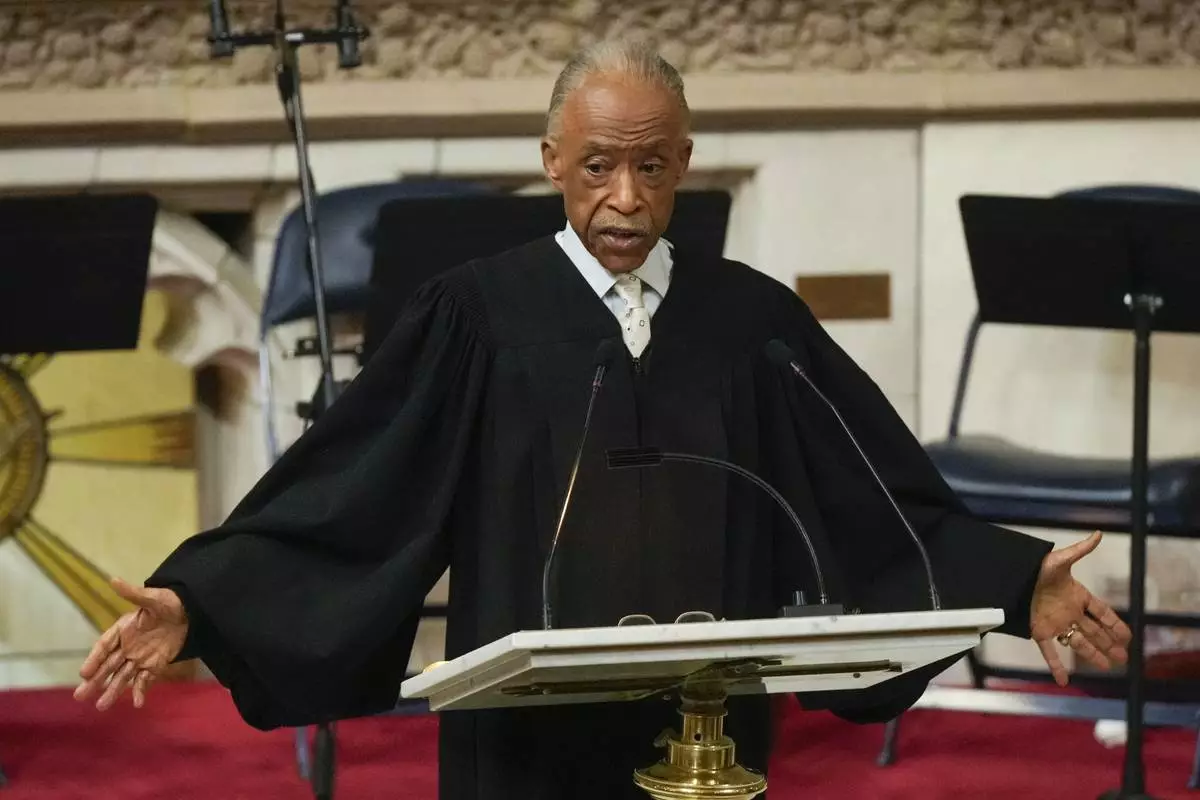
FILE - Al Sharpton speaks during a ceremony in celebration of Roberta Flack's life at The Abyssinian Baptist Church on Monday, March 10, 2025, in New York. (AP Photo/Richard Drew, File)
ANTALYA, Turkey (AP) — NATO foreign ministers on Thursday debated an American demand to massively ramp up defense investment to 5% of gross domestic product over the next 7 years, as the U.S. focuses on security challenges outside of Europe.
At talks in Antalya, Turkey, NATO Secretary-General Mark Rutte said that more investment and military equipment are needed to deal with the threat posed by Russia and terrorism, but also by China which has become the focus of U.S. concern.
“When it comes to the core defense spending, we need to do much, much more,” Rutte told reporters. He underlined that once the war in Ukraine is over, Russia could reconstitute its armed forces within 3-5 years.
Secretary of State Marco Rubio underlined that “the alliance is only as strong as its weakest link.” He insisted that the U.S. investment demand is about “spending money on the capabilities that are needed for the threats of the 21st century.”
The debate on defense spending is heating up ahead of a summit of U.S. President Donald Trump and his NATO counterparts in the Netherlands on June 24-25. It's a high-level gathering that will set the course for future European security, including that of Ukraine.
In 2023, as Russia’s full-scale war on Ukraine entered its second year, NATO leaders agreed to spend at least 2% of GDP on national defense budgets. So far, 22 of the 32 member countries have done so.
The new spending plan under consideration is for all allies to aim for 3.5% of GDP on their defense budgets by 2032, plus an extra 1.5% on potentially defense-related things like infrastructure — roads, bridges, air- and sea ports.
While the two figures add up to 5%, factoring in infrastructure and cybersecurity would change the basis on which NATO traditionally calculates defense spending. The seven-year time frame is also short by the alliance’s usual standards.
Rutte refused to confirm the numbers under consideration, but he acknowledged that it's important to include infrastructure in the equation, “for example to make sure that bridges, yes, are there for you and me to drive our cars but also if necessary to make sure that the bridge will hold a tank. So all these expenditures have to be taken into account.”
It’s difficult to see how many members would reach a new 3.5% goal. Belgium, Canada, Croatia, Italy, Luxembourg, Montenegro, Portugal, Slovenia and Spain are not even spending 2% yet, although Spain does expect to reach that goal in 2025, a year past the deadline.
The U.S. demand would require investment at an unprecedented scale, but Trump has cast doubt over whether the U.S. would defend allies that spend too little, and this remains an incentive to do more, even as European allies realize that they must match the threat posed by Russia.
“There is a lot at stake for us,” Lithuanian Foreign Minister Kęstutis Budrys said. He urged his NATO partners to meet the investment goals faster than the 2032 target "because we see the tempo and the speed, how Russia generates its forces now as we speak.”
British Foreign Secretary David Lammy said his country should reach 2.5% by 2027, and then 3% by the next U.K. elections planned for 2029.
“It’s hugely important that we recommit to Europe’s defense and that we step up alongside our U.S. partners in this challenging geopolitical moment where there are so many precious across the world, and particularly in the Indo-Pacific,” he said.
As an organization, NATO plays no direct security role in Asia, and it remains unclear what demands the Trump administration might make of the allies as it turns its attention to China. The last NATO security operation outside the Euro-Atlantic area, its 18-year stay in Afghanistan, ended in chaos.
Cook reported from Brussels, and Fraser from Ankara, Turkey.
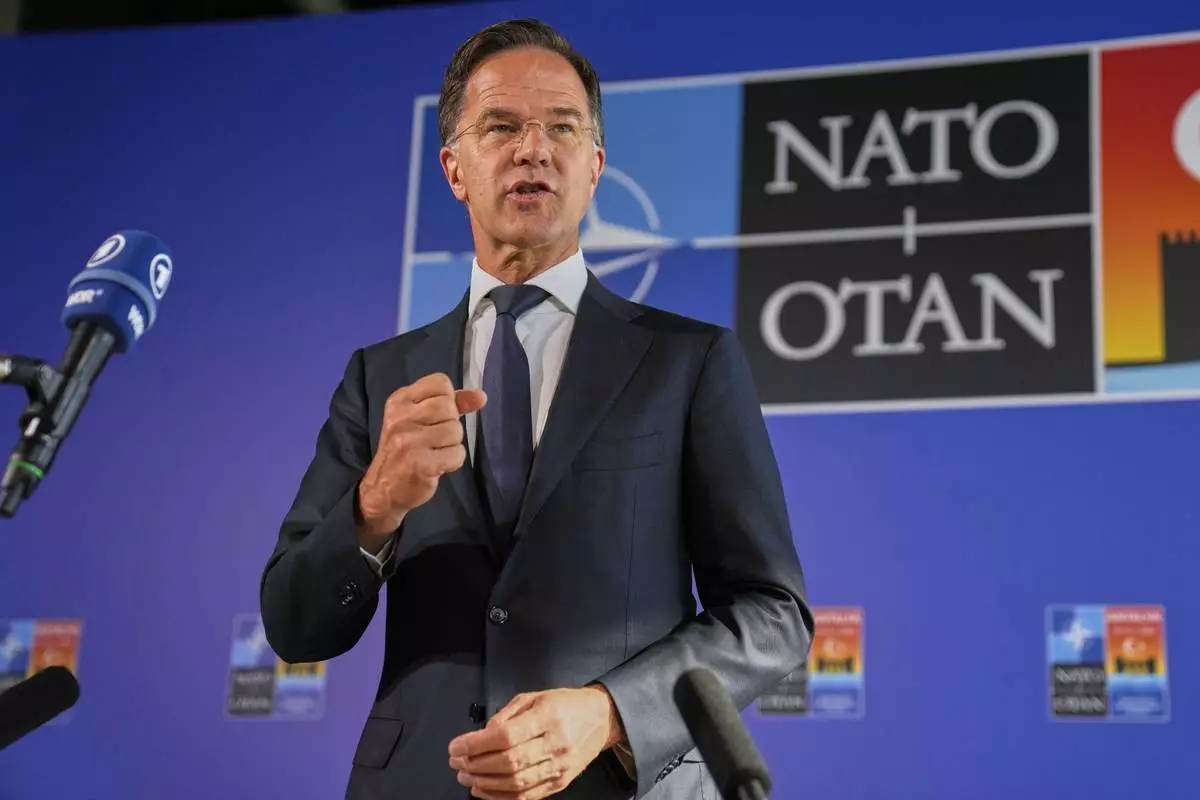
NATO Secretary General Mark Rutte talks to journalists as he arrives for a NATO's informal meeting of foreign ministers in Antalya, southern Turkey, Thursday, May 15, 2025. (AP Photo/Khalil Hamra)
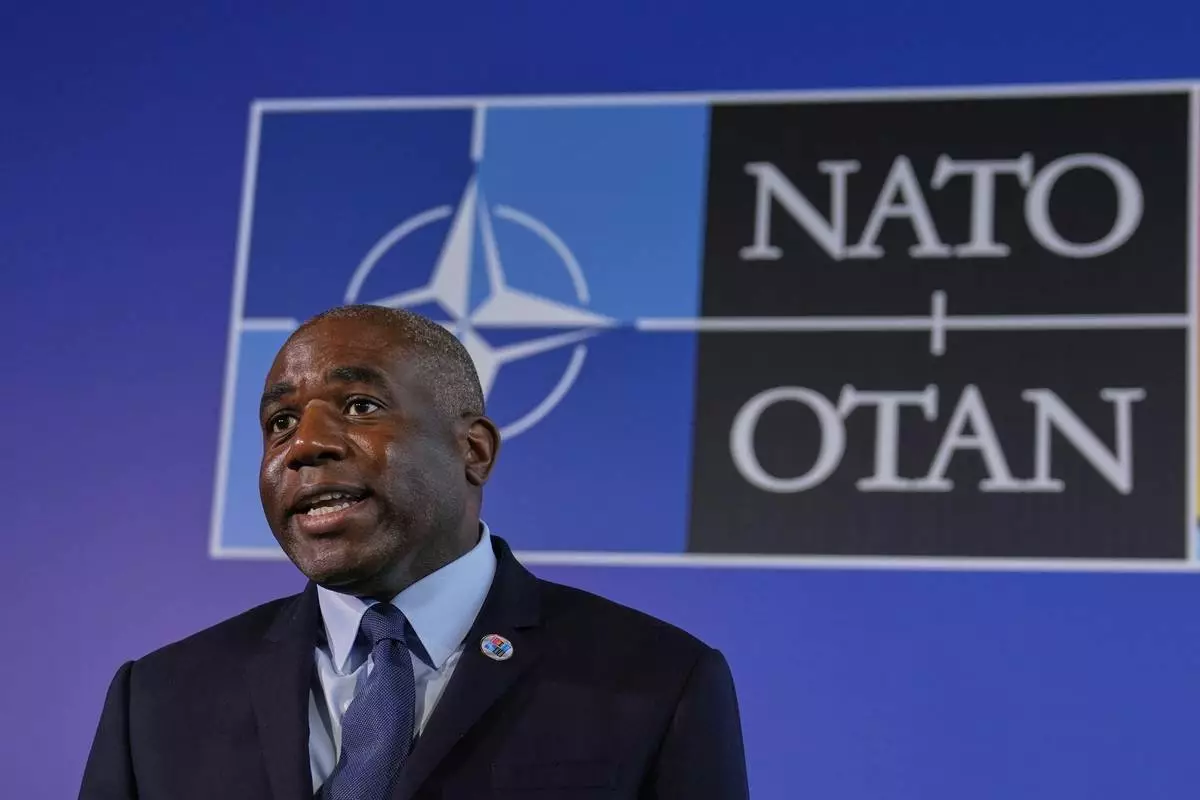
British Foreign Secretary David Lammy talks to journalists as he arrives for a NATO's informal meeting of foreign ministers in Antalya, southern Turkey, Thursday, May 15, 2025. (AP Photo/Khalil Hamra)
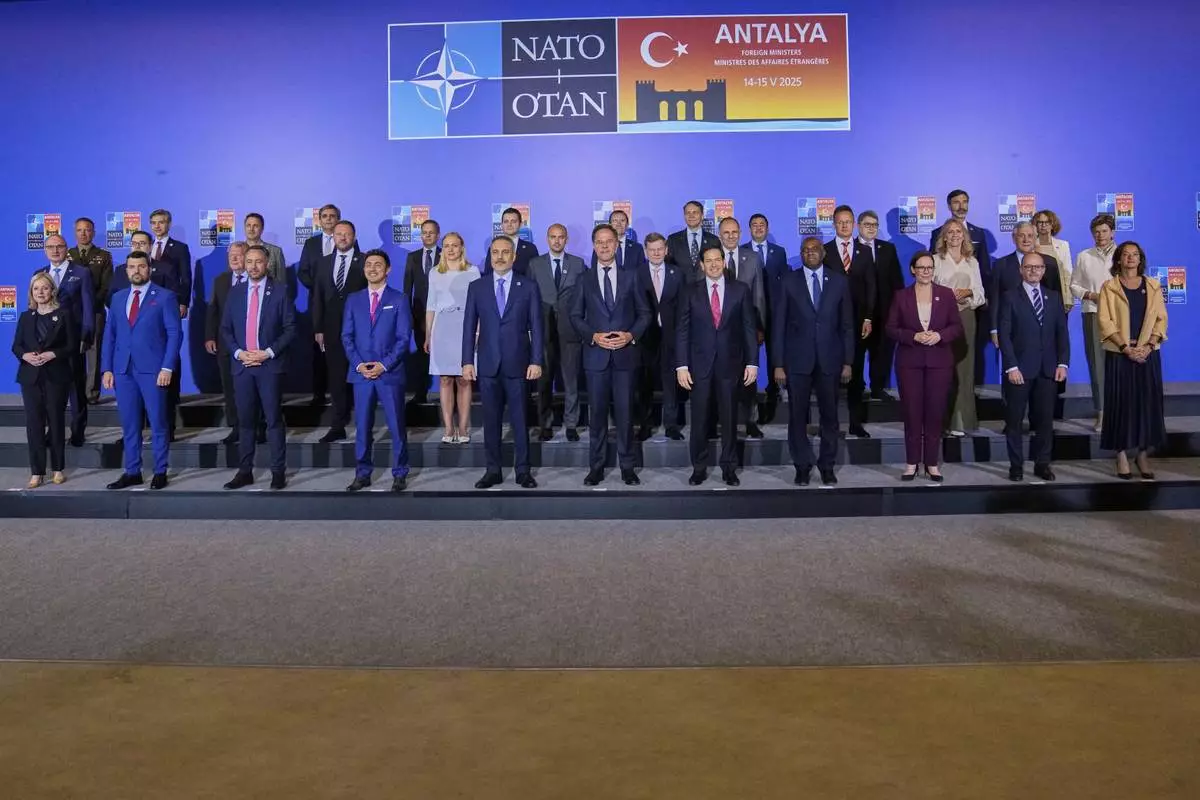
NATO foreign ministers pose for a group photo during their informal meeting in Antalya, southern Turkey, Thursday, May 15, 2025. (AP Photo/Khalil Hamra)
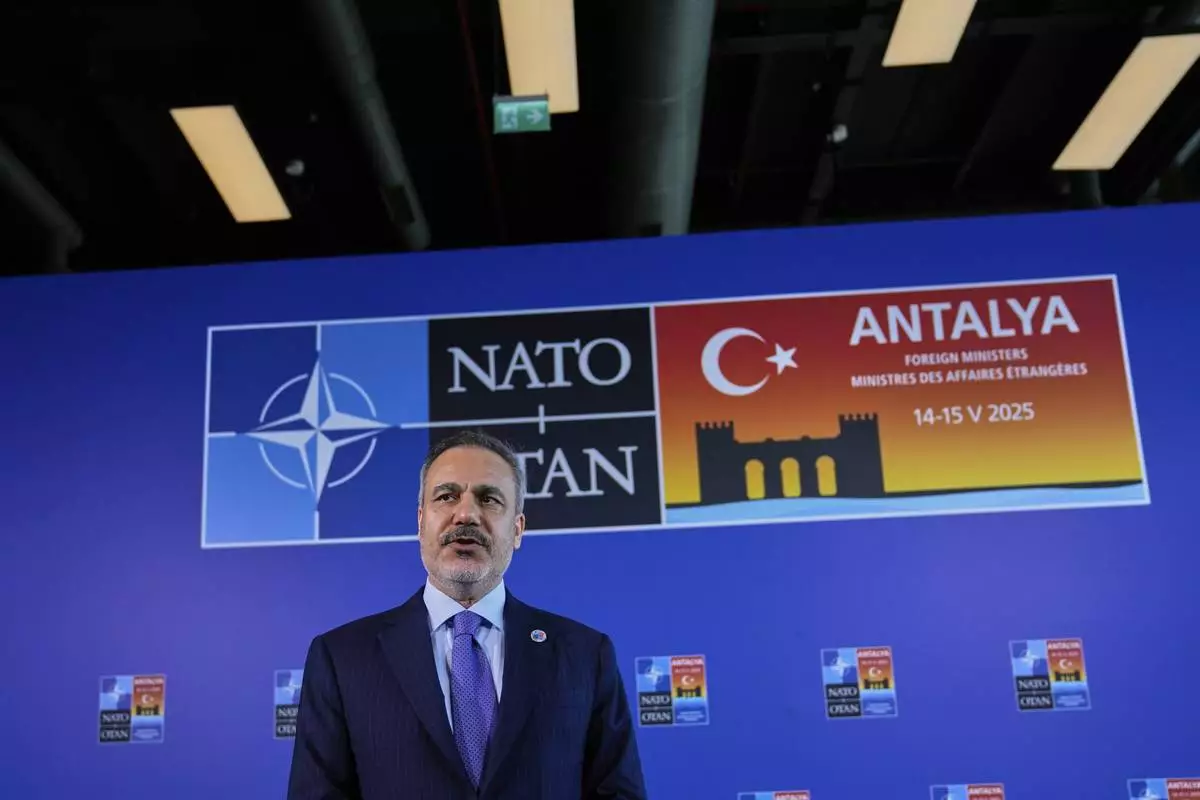
Turkey's Foreign Minister Hakan Fidan talks to journalists as he arrives for a NATO's informal meeting of foreign ministers in Antalya, southern Turkey, Thursday, May 15, 2025. (AP Photo/Khalil Hamra)
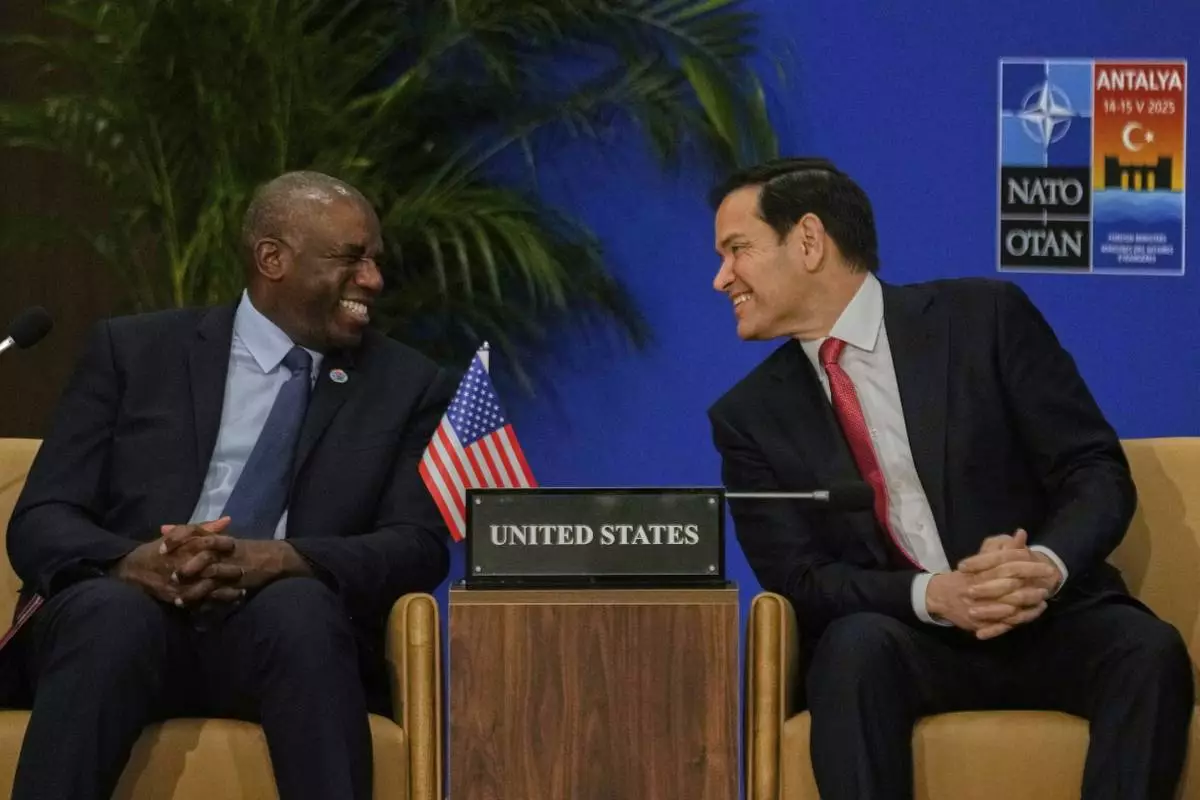
United States Secretary of State Marco Rubio, right, talks to British Foreign Secretary David Lammy during an informal meeting of NATO's foreign ministers in Antalya, southern Turkey, Thursday, May 15, 2025. (AP Photo/Khalil Hamra)
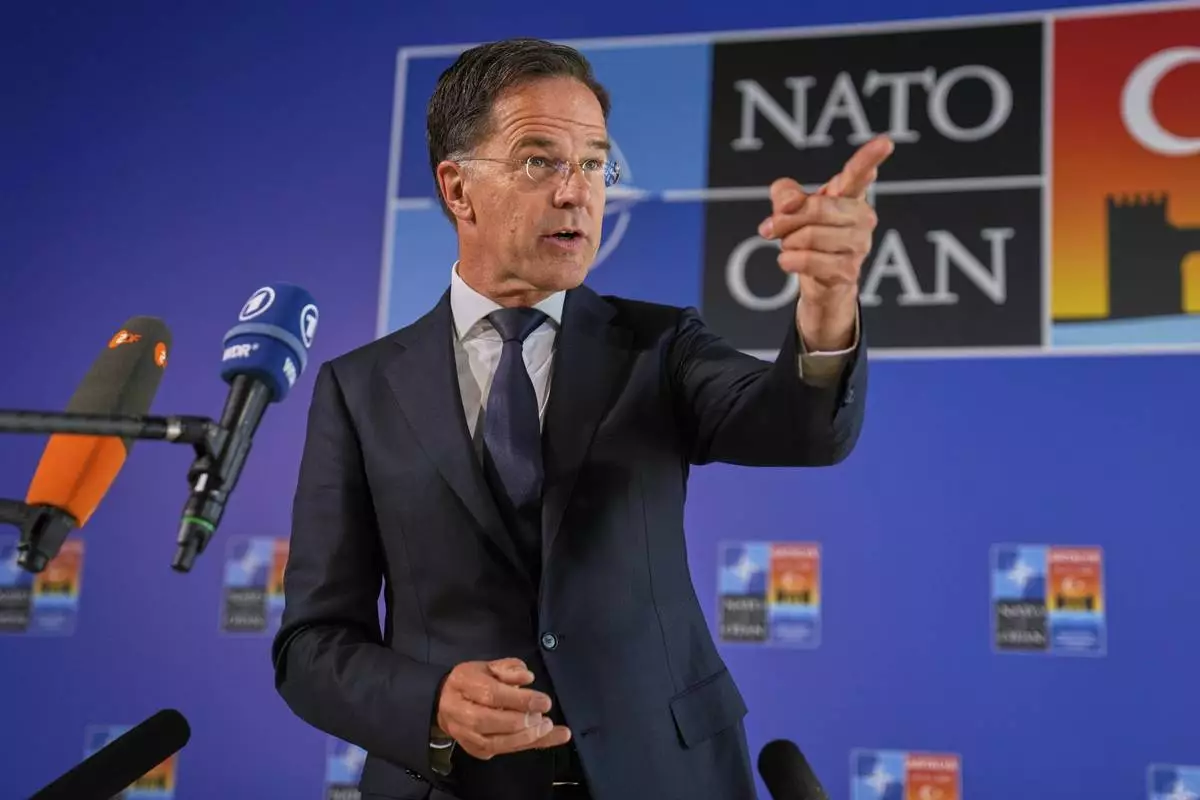
NATO Secretary General Mark Rutte talks to journalists as he arrives for NATO's informal meeting of foreign ministers in Antalya, southern Turkey, Thursday, May 15, 2025. (AP Photo/Khalil Hamra)
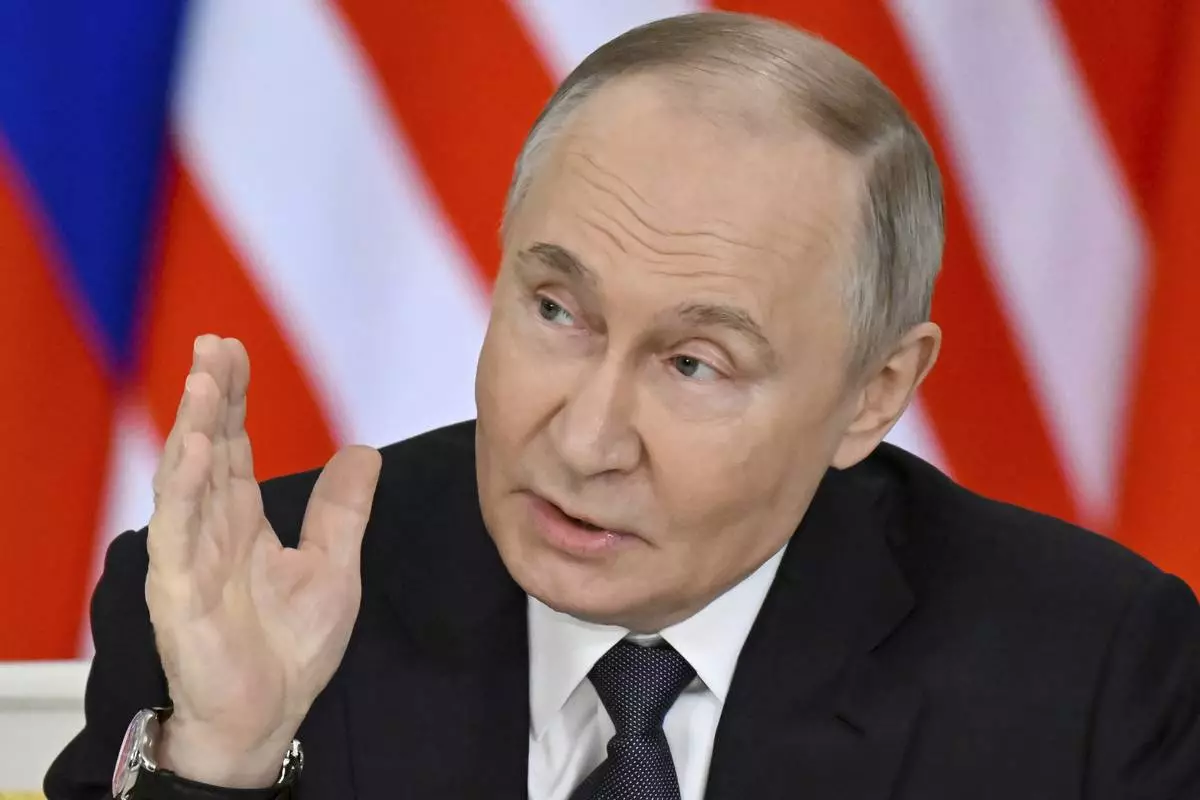
Russian President Vladimir Putin speaks during a joint press statement with Malaysian Prime Minister Anwar Ibrahim at the Kremlin in Moscow, Russia, Wednesday, May 14, 2025. (Alexander Nemenov/Pool Photo via AP)
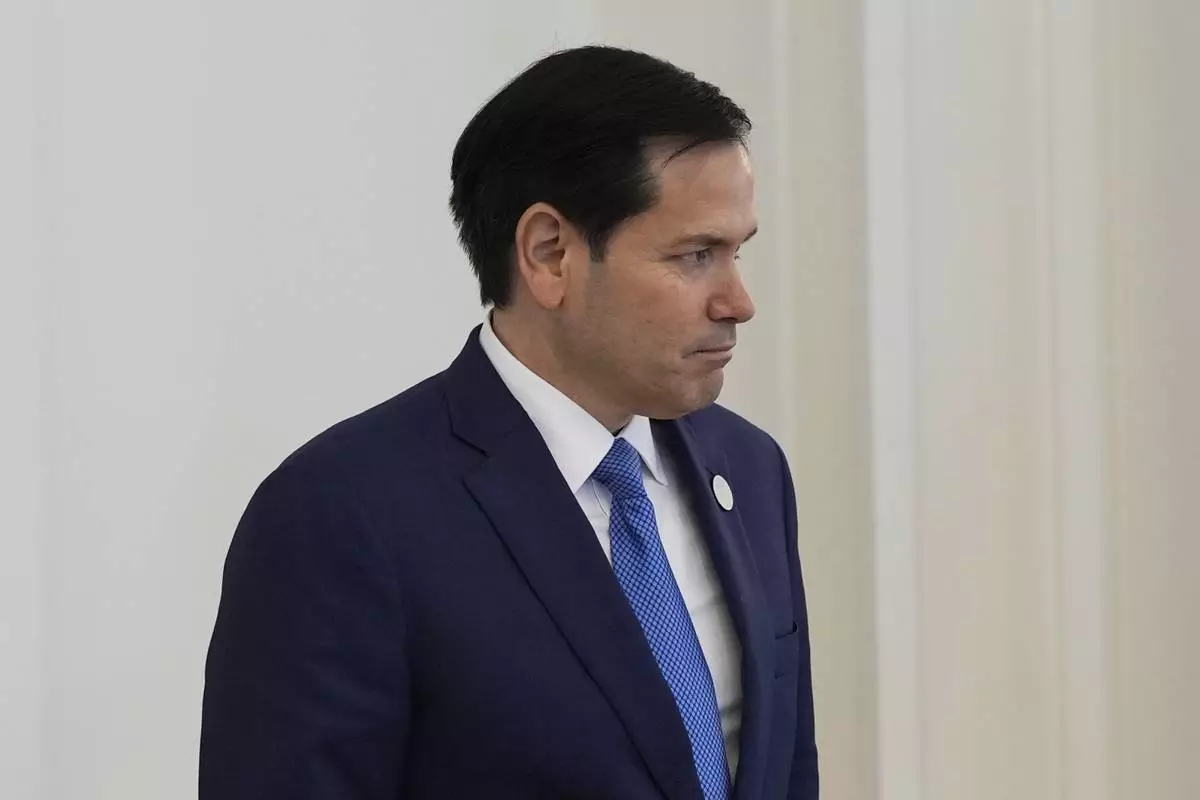
Secretary of State Marco Rubio departs a lunch between President Donald Trump and Qatar's Emir Sheikh Tamim bin Hamad Al Thani at the Amiri Diwan in Doha, Qatar, Wednesday, May 14, 2025. (AP Photo/Alex Brandon)




